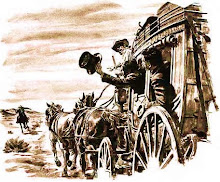At first when I read this story even I thought "uh oh!" However, I read it again and tried to read between the lines. As often, the Houston Chronicle doesn't tell the entire story either through omission or simply because they don't know. The concept of the story is sure to outrage any decent person. The concept of small town cops stopping out-of-towners and taking their property. However when I read the story again somethings stand out that make me think there is more than what the story tells you.
"Linda Dorman, a great-grandmother from Akron, Ohio, had $4,000 in cash taken from her by local authorities when she was stopped while driving through town after visiting Houston in April 2007. Court records make no mention that anything illegal was found in her van and show no criminal charges filed in the case. She is still waiting for the return of what she calls “her life savings.”
Okay, it's not against the law to carry $4,000 in cash, but why is she carrying $4,000 in cash? Take a look at the map here. How is Tenaha, TX, a direct route from Ohio to Houston, TX? Could it be she likes the back roads for the scenery? Or could she be avoiding the main highways for some reason? I like how they point out how Ms. Dorman is a great-grandmother but don't mention her actual age. This woman can be a great-grandmother and she's wanted by the federal government. The writer wants you to picture some centurion in a walker being hassled by the police. The article says no charges were filed but her cash was seized. What does the report say? Was a drug dog brought in? Did it hit on the car? Did the drug dog hit on the cash? Sometimes when drug residue is found on cash, it is seized. Plus she was stopped in 2007, is the case still pending?
Attorney David Guillory "is suing officials in Tenaha and Shelby County on behalf of Dorman and nine other clients who were stripped of their property. All were African-Americans driving either rentals or vehicles with out-of-state plates."
The photo caption says that between 2006 and 2008 "roughly" 140 people were subject to property seizure. Yet, only 10 people are suing the city of Tenaha and Shelby County. If these officers are indeed robbing people as the lawyer claims, why are only 10 out of 140 people suing? Plus the article points out the race of the people suing. What is the race of the other 130 people?
"In Shelby County, the district attorney made legal agreements with some individuals that her office would not file criminal charges so long as the property owner waived all rights to the valuables."
Then why sign it to start with? Make them prove their criminal case.
“In exchange for (respondent) signing the agreed order of forfeiture, the Shelby County District Attorney’s Office agrees to reject charges of money laundering pending at this time,” read one waiver, dated April 10, 2007."
Details of the case?
"The property owners named in the waiver had just signed over $7,342 in cash, their 1994 Chevrolet Suburban, a cell phone, a BlackBerry and a stone necklace."
I'm not saying Shelby County is not doing the right thing. I'm not defending them. In fact, Shelby County has made poor decisions in the past. I'm only questioning the reporter's angle and wanting more information before I make judgment. Let the lawsuit go forward and make all the cards come down on the table.
Subscribe to:
Post Comments (Atom)




2 comments:
Actually, Rte 59 through Tenaha is one of the most direct routes between Interstate 20 to the north and Houston. We live in Shreveport, LA and have taken Rte 59 through Tenaha several times--although there are slightly alternate local routes. But as we are white we never noticed the danger, although East Texas police tend to be Gestapo-like.
If you actually take the time to Mapquest the route between Akron, OH and Houston, TX you would notice that the route between I-30 at Texarkana and Houston is US Hwy. 59. This IS the most direct route.
Post a Comment